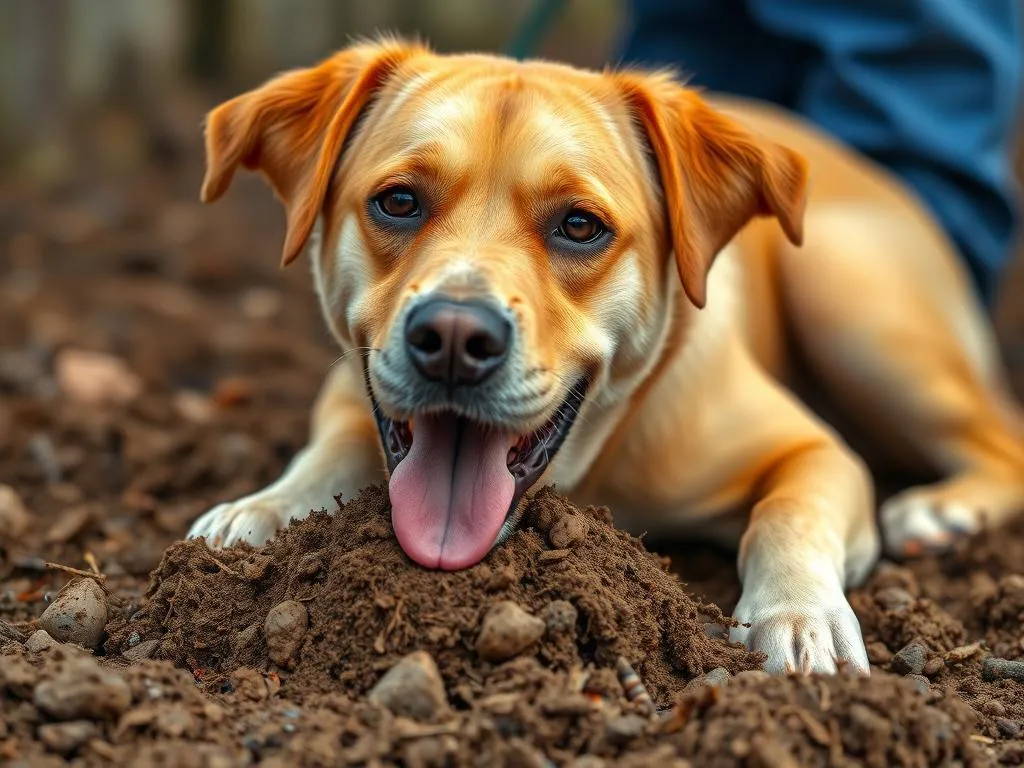
Understanding the health of our canine companions is essential for ensuring their well-being. One of the many indicators of a dog’s health is the color of their poop. Among the various hues, yellow dog poop can raise eyebrows and spark concern among pet owners. Recognizing what different poop colors signify is crucial, as they can provide insights into a dog’s diet, hydration levels, and overall health.
Understanding Dog Poop Colors
The Importance of Poop Color
A dog’s poop color can reveal a lot about their health. Healthy poop is typically a shade of brown, indicating a well-balanced diet and proper digestion. However, any deviation from this norm can suggest underlying issues. Factors such as diet, hydration, and overall health can all impact poop color, making it essential for pet owners to pay attention to these changes.
Common Poop Colors and Their Meanings
Normal poop colors usually fall within a brown spectrum. However, there are several other colors that pet owners should be aware of:
- Yellow: This color can signal dietary indiscretion or health issues.
- Black: Black poop may indicate bleeding in the upper gastrointestinal tract.
- Red: The presence of bright red blood can signify bleeding in the lower digestive tract.
- Gray or Pale: These colors may indicate issues with the liver or pancreas.
What Yellow Dog Poop May Indicate
Dietary Factors
The food your dog consumes plays a significant role in determining the color of their poop. Certain dog foods, especially those rich in artificial colors or low-quality ingredients, can lead to yellow poop. Additionally, if a dog has recently eaten something unusual, such as human food or spoiled items, it could result in a change in color.
Health Concerns
Yellow poop can also indicate potential health issues. Some of the most common concerns linked to yellow poop include:
- Liver Problems: Issues with the liver can impact bile production and lead to yellowing of the stool.
- Pancreatic Issues: A malfunctioning pancreas may affect digestion, resulting in altered poop color.
- Digestive Disorders: Conditions such as infections or inflammatory bowel disease can manifest through changes in poop color.
If you notice yellow poop, it’s essential to monitor for other symptoms, such as vomiting, lethargy, or lack of appetite, as these could indicate a more serious problem.
When to Worry
While yellow poop can sometimes be a temporary issue, certain signs warrant immediate veterinary attention. If your dog exhibits any of the following symptoms alongside yellow poop, it’s time to consult a vet:
- Persistent yellow poop over several days
- Vomiting or diarrhea
- Lethargy or unusual behavior
- Loss of appetite or weight loss
Early intervention can make a significant difference in your dog’s health outcomes.
Consulting a Veterinarian
When to Seek Help
If you observe changes in your dog’s poop color, especially if it persists or is accompanied by other symptoms, it’s crucial to reach out to your veterinarian. Regular vet check-ups are also essential for preventive care, allowing for early detection of any potential health issues.
What to Expect During a Vet Visit
When you visit the vet regarding your dog’s unusual poop color, they will typically conduct a thorough physical examination. This may include:
- Assessing your dog’s overall health and condition.
- Conducting fecal tests to check for parasites or infections.
- Asking questions about your dog’s diet, any changes in behavior, and other symptoms.
Your vet will use this information to determine the best course of action.
Common Vet Answers to Yellow Dog Poop
When discussing yellow dog poop, vets often provide insights into potential causes and recommended diagnostic tests. Some common vet responses might include:
- Evaluating dietary changes or indiscretions.
- Suggesting blood tests to assess liver and pancreatic function.
- Performing fecal exams to check for infections or parasites.
Understanding these responses can help pet owners feel more prepared and informed.
Preventive Measures for Healthy Dog Poop
Proper Nutrition
A balanced diet is key to ensuring your dog maintains healthy poop. Providing high-quality dog food rich in nutrients will help your dog’s digestive system function optimally. Look for foods that list meat as the primary ingredient and avoid those with fillers or artificial additives.
Hydration
Water intake is critical for your dog’s overall health and can significantly impact poop consistency and color. Ensure your dog has access to fresh water at all times. If your dog seems to be drinking less than usual, consider ways to encourage hydration, such as adding water to their food or offering ice cubes as a treat.
Regular Vet Check-ups
Routine vet visits are essential for monitoring your dog’s health. These check-ups allow for vaccinations, parasite prevention, and early detection of potential issues. Discuss your dog’s diet and any changes in their behavior with your veterinarian during these visits.
Monitoring Your Dog’s Health
As a pet owner, keeping an eye on your dog’s poop and overall health is vital. Here are some tips for monitoring:
- Keep a Health Journal: Track changes in your dog’s diet, behavior, and poop color. This record can be invaluable during vet visits.
- Observe Regularly: Make it a habit to check your dog’s poop during walks. Look for consistency, color, and any unusual signs.
- Stay Informed: Educate yourself about dog health and nutrition. The more you know, the better you can care for your furry friend.
Conclusion
Awareness of your dog’s poop color, especially yellow, can serve as a valuable indicator of their health. By understanding what different colors signify and maintaining a proactive approach to dog health care, pet owners can significantly contribute to their dogs’ overall well-being. Always consult a veterinarian for any concerning changes in health, as early intervention is key to ensuring a long and healthy life for your beloved pet.









